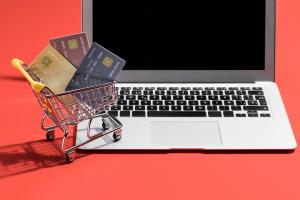
Money Mule and Reshipping Scams
What Is a Money Mule?
A money mule is someone who allows others to use their bank account or e-wallet to transfer money originating from illegal activities. Sometimes, people unknowingly become money mules, unwittingly helping criminals. Scammers often promise easy money if you let them use your account, or they may ask you to open a new account for them.
Examples:
- A stranger on Facebook offers you ₱2,000 if you let them use your bank account to receive money and then send it to someone else.
- Someone you met online asks you to open a GCash or Maya account and give them the details, promising a “reward.”
- You are told you can earn quick cash by “helping” process donations or payments, but you need to use your bank account.
What Is a Reshipping Scam?
A reshipping scam occurs when scammers hire individuals to receive packages (often gadgets or luxury items purchased with stolen credit cards) at their homes. Then, they ask you to repackage and send the items to another address, often abroad. The scammer might say this is a “work-from-home” job.
Examples:
- You see a job post online saying you can earn money as a “shipping coordinator” or “parcel forwarder” from home.
- Your job is to receive packages, rewrap them, and send them to another address, but you never meet your “boss” in person.
- You are asked to give your ID or personal details to get the job.
Why Are These Scams Dangerous?
- You can go to jail. Being a money mule is a crime in the Philippines. You can be fined up to ₱5 million or jailed for up to 14 years.
- You help criminals. Your account or address is used to hide stolen money or goods.
- You lose trust. Your bank account can be frozen, and you may lose access to your money.
- You can be blamed. Even if you did not know, you can still be held responsible.
Tips to Avoid Money Mule and Reshipping Scams
For Money Mule Scams
- Never let anyone use your bank account or e-wallet. Your account is for you only.
- Don’t share your PIN, OTP, or passwords. Not even with friends or family.
- Ignore offers of “easy money” for using your account. If it sounds too good to be true, it probably is.
- Don’t open accounts for others. Especially if you don’t know them well.
- Report suspicious messages or calls to your bank or the authorities.
For Reshipping Scams
- Be careful with online job offers. Real companies do not ask you to use your address to receive and send packages for strangers.
- Don’t give your ID or personal info to unknown people online.
- If you receive a package you didn’t order, don’t accept or pay for it. Inform the courier or company.
- Talk to your family. Tell them not to accept packages or payments for things they didn’t order.
Staying safe means being cautious with your personal information and avoiding promises of easy money. If you think you or someone you know may be involved in a scam, report it to your bank or the police immediately.




